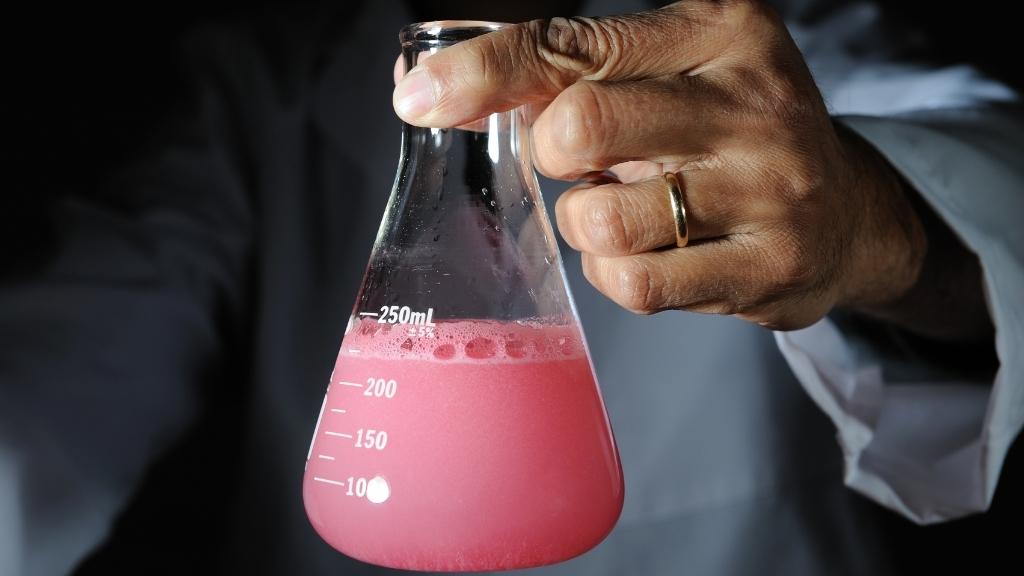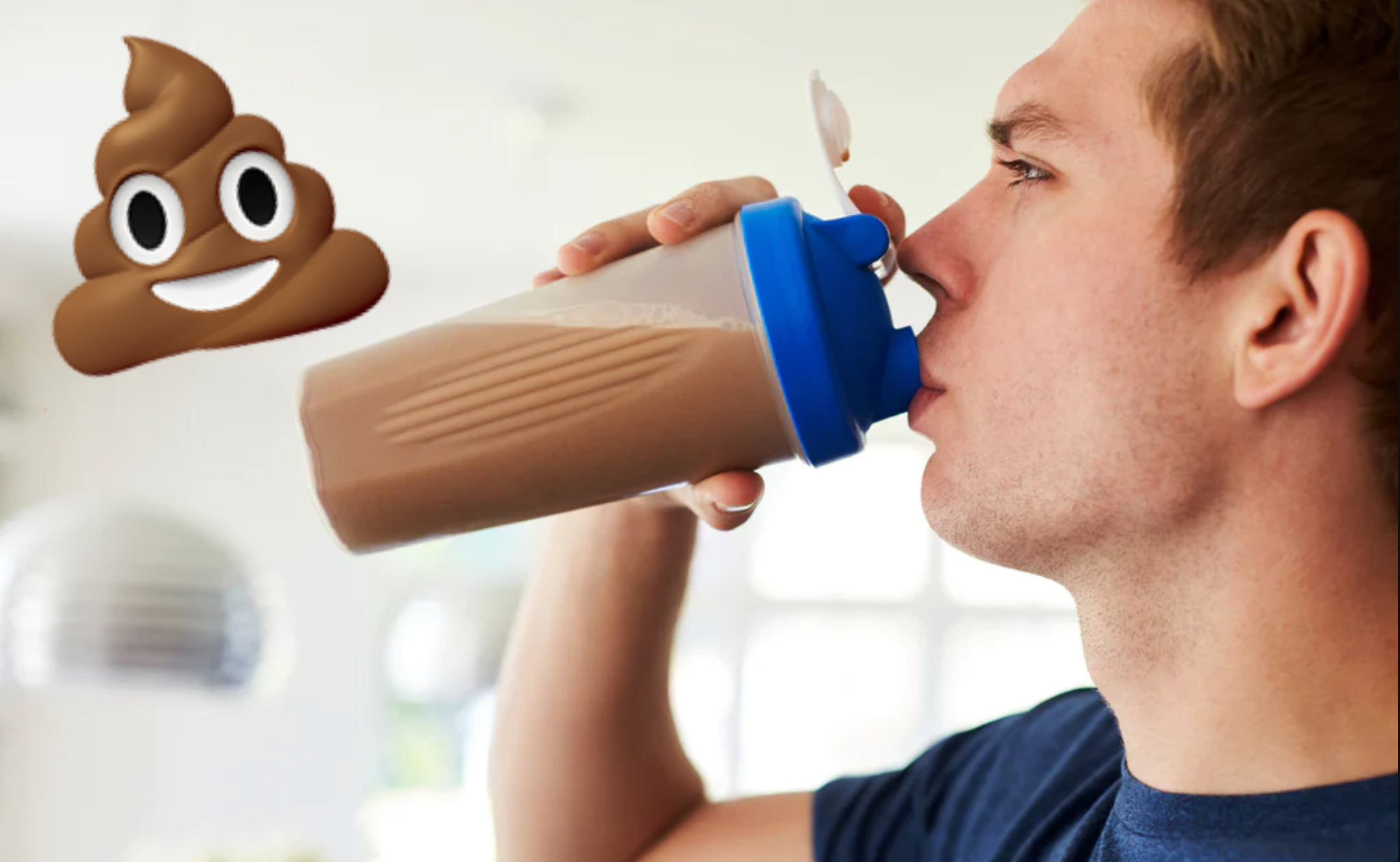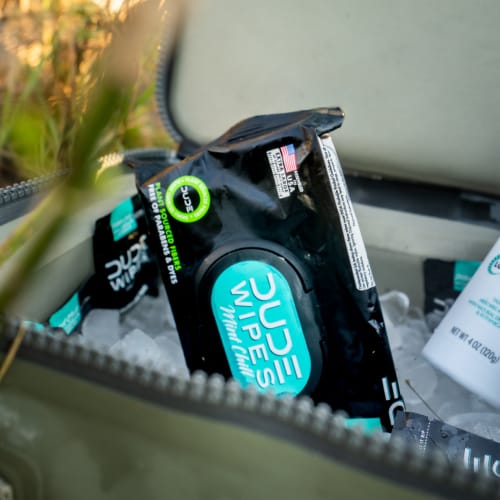Indigestion is one of the most common tummy troubles out there, affecting 1 out of every 4 DUDEs in America each year. Most of the time, indigestion isn’t very serious—it’s just the price you pay for demolishing a plate of hot wings or doing damage at the bar.
However, some cases of indigestion are so bad that they’ll land you in the emergency room. And if that’s the case, you may be prescribed a GI cocktail: a mixture of medications that’s designed to relieve indigestion.
Slamming a GI cocktail might sound like a no-brainer if you’re dealing with chronic bloating and burping. But these concoctions are controversial in the medical community. Keep reading to learn what goes into a GI cocktail, how it works, and some potential side effects to keep in mind.
What Is a GI Cocktail?
A GI cocktail is a mixture of three medications used to treat indigestion: a liquid antacid, a liquid anesthetic, and an anticholinergic. GI cocktails are sometimes prescribed by doctors in the emergency department to treat severe cases of dyspepsia (AKA indigestion).
Gastrointestinal cocktails have been around since the 1990s, and their exact composition can vary. But they often include a combination of the same three ingredients. Let’s take a closer look at each one.
Liquid Antacid
Antacids are like firefighters for your gut. They neutralize excess stomach acid that causes heartburn and indigestion. Antacids contain compounds like calcium carbonate, aluminum hydroxide, or magnesium compounds that turn stomach acid into water and other substances that are easier on your digestive system.
Liquid Anesthetic
Liquid anesthetics temporarily relieve pain in your mouth, throat, esophagus, and stomach. The active ingredient is viscous lidocaine, which works by blocking nerve signals in the affected area, stopping pain signals to your brain.
Anticholinergic
Anticholinergics relax the muscles in your stomach to help relieve cramping and diarrhea. These drugs (which can include atropine sulfate, hyoscyamine sulfate, phenobarbital, or scopolamine hydrobromide) work by blocking the action of acetylcholine in your nervous system.
What Does a GI Cocktail Do?
GI cocktails are designed to provide fast relief for symptoms of dyspepsia, including nausea, vomiting, bloating, abdominal pain, acid reflux, constipation, diarrhea, and gas. The idea is that combining all three medications into one “cocktail” is more effective at treating indigestion than relying on just one.
Think of it as the gastrointestinal equivalent of a gym bros “stacking” supplements to get the maximum benefit.
How Effective Are GI Cocktails?
GI cocktails have been shown to relieve indigestion for some patients, but research is limited and not up-to-date. Here’s a quick rundown of a few studies:
- A 1995 study found that GI cocktails relieved chest pain and abdominal pain, but they were given alongside other medications so it’s tough to tell what really worked.
- A double-blind clinical trial from 2003 found no significant differences in pain relief between GI cocktails and antacids alone.
- A 2006 report concluded that antacids alone were enough to treat indigestion.
Bottom line: There’s not much evidence to suggest that GI cocktails are a magic elixir that cure indigestion. In fact, you might be better off snagging a bottle of Pepto Bismol from your local drugstore.
Potential Side Effects of GI Cocktails
GI cocktails can tame your indigestion, but they can also create problems of their own. Let’s break down the potential side effects of the three main ingredients:
Potential Side Effects of Antacids
- Diarrhea
- Constipation
- Nausea
- Headache
- Vomiting
Potential Side Effects of Liquid Anesthetics
- Irritation
- Allergic reactions
- Nausea
- Vomiting
- Drowsiness
- Dizziness
Potential Side Effects of Anticholinergics
- Dry mouth and eyes
- Blurred vision
- Constipation
- Drowsiness
- Urinary retention
Natural Ways to Relieve Indigestion
Slugging a GI cocktail doesn’t sound appetizing? Here are some home remedies that have been shown to help settle your digestive system:
- Ginger Tea: Ginger has natural anti-inflammatory properties. Try sipping on ginger tea or chewing on a small piece of fresh ginger.
- Peppermint Oil: Peppermint oil can relax the muscles in your gastrointestinal tract. You can take it in capsule form or drink peppermint tea.
- Chamomile Tea: Chamomile has anti-inflammatory and calming properties that can help soothe your digestive system.
- Baking Soda and Water: Mix a teaspoon of baking soda in a glass of water and drink it. This can help neutralize stomach acid.
- Fennel Seeds: Chewing on a teaspoon of fennel seeds after meals may help alleviate indigestion.
- Apple Cider Vinegar: Mix a tablespoon of apple cider vinegar in a glass of water and drink it before meals. This may help improve digestion.
- Aloe Vera Juice: Aloe vera juice can have a soothing effect on the digestive tract. Drink a small amount, but be careful as excessive intake might make you sh*t your pants.
- Probiotics: Eating yogurt with live cultures or taking a probiotic supplement can promote a healthy balance of gut bacteria, aiding digestion.
- Warm Lemon Water: Sipping on warm lemon water may stimulate digestion and help prevent indigestion.
Did Someone Say Diarrhea?
Between the bloating, farting, and imminent threat of explosive diarrhea, indigestion can make you spend a lot of time on the toilet. Don’t add insult to injury by wiping your ass with dry toilet paper.
Swap your sandpaper for DUDE Wipes and enjoy the soothing, healing effects of aloe and vitamin E. We might not be able to prevent indigestion, but you can bet your ass we prevent chapped rears and skid marks.









Leave a comment
This site is protected by reCAPTCHA and the Google Privacy Policy and Terms of Service apply.